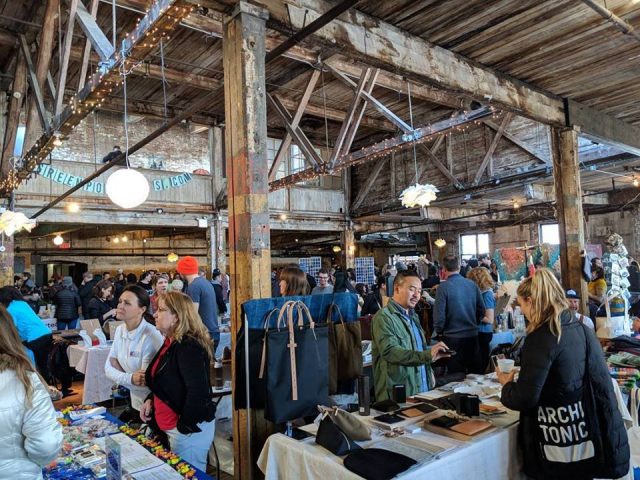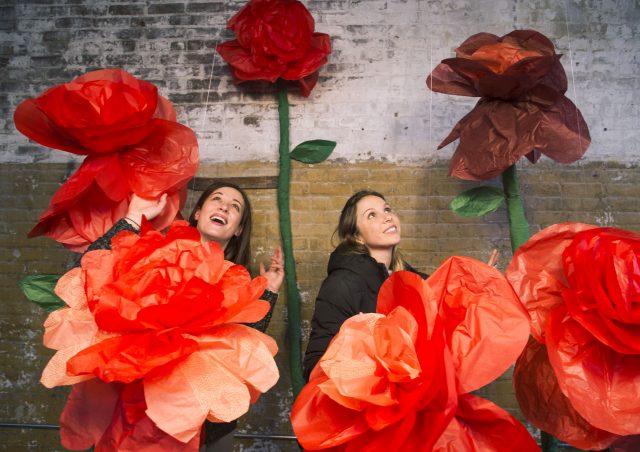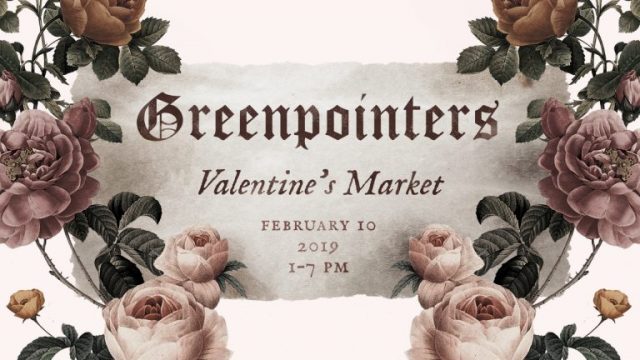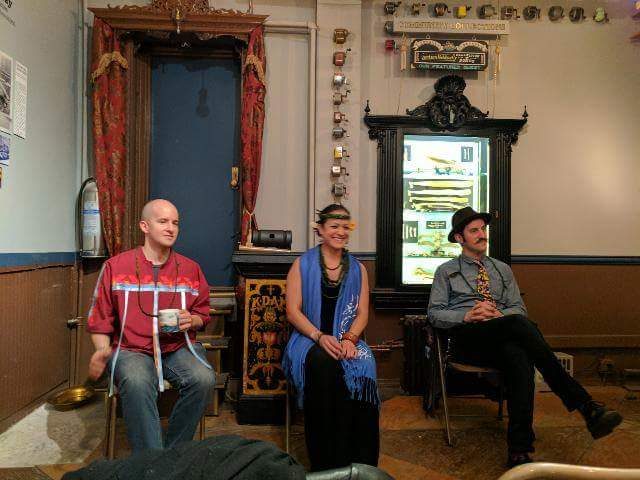
“There are roughly three New Yorks. There is, first, the New York of the man or woman who was born here, who takes the city for granted and accepts its size and its turbulence as natural and inevitable. Second, there is the New York of the commuter — the city that is devoured by locusts each day and spat out each night. Third, there is the New York of the person who was born somewhere else and came to New York in quest of something … Commuters give the city its tidal restlessness; natives give it solidity and continuity; but the settlers give it passion.” – E.B. White, Here Is New York
Last night, Williamsburg’s The City Reliquary took on a heated topic in the back room of their kitschy Metropolitan Avenue space with their event Redefining “Native New Yorker.” It’s a topic that’s been hotly debated well before E.B. White even wrote his stunning ode to New York in 1949.
“For many people, the term ‘native New Yorker’ usually refers to someone born and raised in one of the five boroughs,” the event description read, “While this is one way of understanding what it means to be a native in New York, this group of presentations and performances will offer a broader and more inclusive look.”
The panelists included a Ditmas Park native, a descendant of a Lenape tribe member and a native Hawaiian who has lived in New York for almost 20 years. All but the native Brooklynite shied away from the question of who gets to call themselves a native New Yorker, and instead performed traditional aspects of their own culture. They were all undoubtedly New Yorkers, even if they weren’t born here. While they didn’t settle the question, they highlighted the idea that New York has always been made of immigrants, wanderers and people from somewhere else .
________
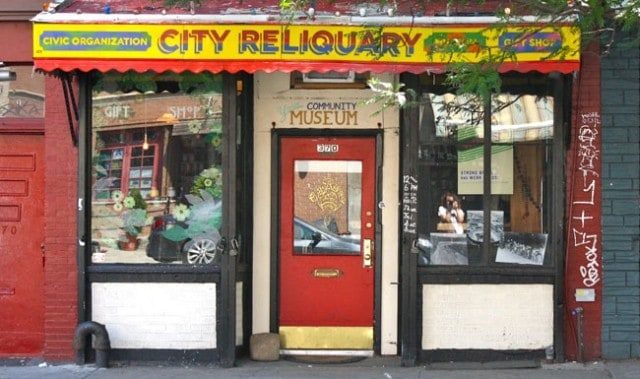
A panel of three New Yorkers spoke: Matt Levy, a Brooklyn-Born, Ditmas-Park bred owner of Levy’s Unique New York tours, Ryan Victor “Little Eagle” Pierce, a Jersey-born Nanticoke Lenni-Lenape Tribal Nation member, and Kaina Quenga, a native Hawaiian woman who’s lived in New York since 2001 (and was barefoot for the event).
Yet, despite the incendiary focus of the evening, the respondents did not argue for the expansion of who gets to be a native New Yorker, but instead mainly focused on sharing their own cultures. Respectively, that was a poem about the genocide of America’s Native Americans from Victor, a Hawaiian prayer from Quenga, and a series of New York facts and findings from Levy.
Levy and Victor did dabble in diluting the meaning of “native New Yorker,” however, with Levy suggesting that the title is merely a symptom of braggadocio, a product of New Yorkers’ competitive nature and New York City being a “who’s-more-authentic type of town.” Levy also noted that “New York is becoming more midwestern,” with the influx of transplants from what he called the “most despised four letter words in New York — Iowa and Ohio.” Victor, who was raised in New Jersey, diluted the idea in a more meaningful way: by speaking of how his ancestors had originally inhabited large swaths of the northeast, sans state boundaries, with a shared identity.
Quenga, meanwhile, prefaced her presentation by informing the audience, “I am not a native to this island. My place here is as a visitor.” This, despite having lived in New York for close to 20 years. In Hawaiian culture, Quenga said, when you are asked where you are from, it really is a question of where you were born.
Indeed, having been born and grown up here myself, it is confusing to me why people who did not would call themselves native — do you have no pride, no connections, no memories in the place you are actually from? There’s no shame in being from the West, the South, another country or another continent, so I don’t understand why people go so far as to lie about where they are from just so they can say they are from New York.
There’s no national dialogue (as far as I know there’s not even a local dialogue) about who’s a native to Cleveland, to Salt Lake City, to Hartford, to Newark. You’ve got some of the same competition for the ability to call yourself a native in other desirable, economically resurgent cities like Austin, San Francisco and Boston. But many people from places that haven’t bounced back, from places that voted for Trump in hopes of bringing back the industrial jobs which once defined their now largely unemployed populace, would rather pretend they were always from New York than acknowledge they were not.
Who gets to qualify as a New Yorker? is a fun question, one that has a number of creative answers (“It’s when you start preferring tap to bottled water,” Levy said. Outgoing Brokelyn editor said you become a New Yorker: “When you stop caring about the answer to that question.) but who gets to qualify as a native New Yorker is a sad question, because it means some people are so ashamed of where they are from that they’d rather forget about that identity all together.
Still not sure if you’re a native New Yorker or not? Take our one question quiz: Are you a native New Yorker?
1. Were you born in New York?
A. Yes
B. No
If you answered A, you’re a Native New Yorker.
If you answered B, you’re native to somewhere, but it’s not here.
Leave a Reply

